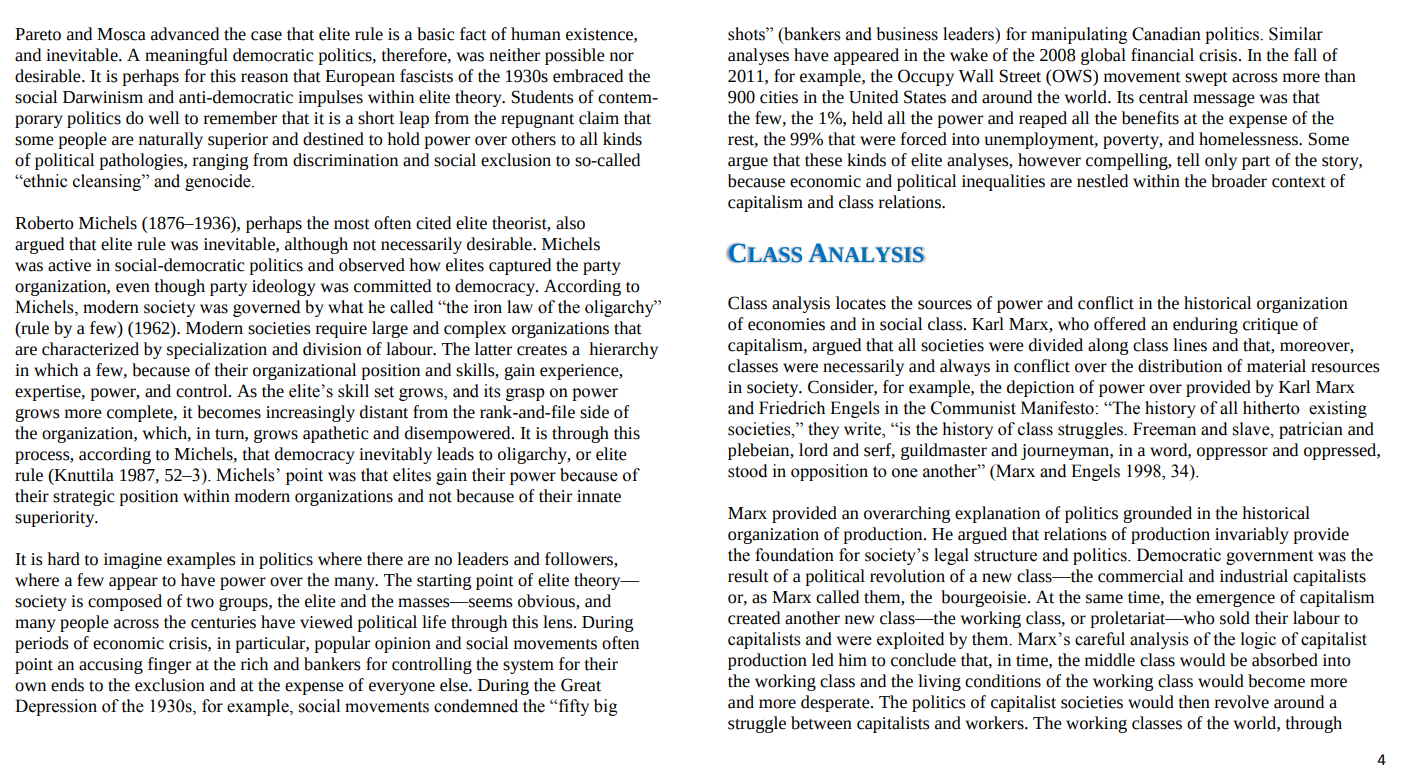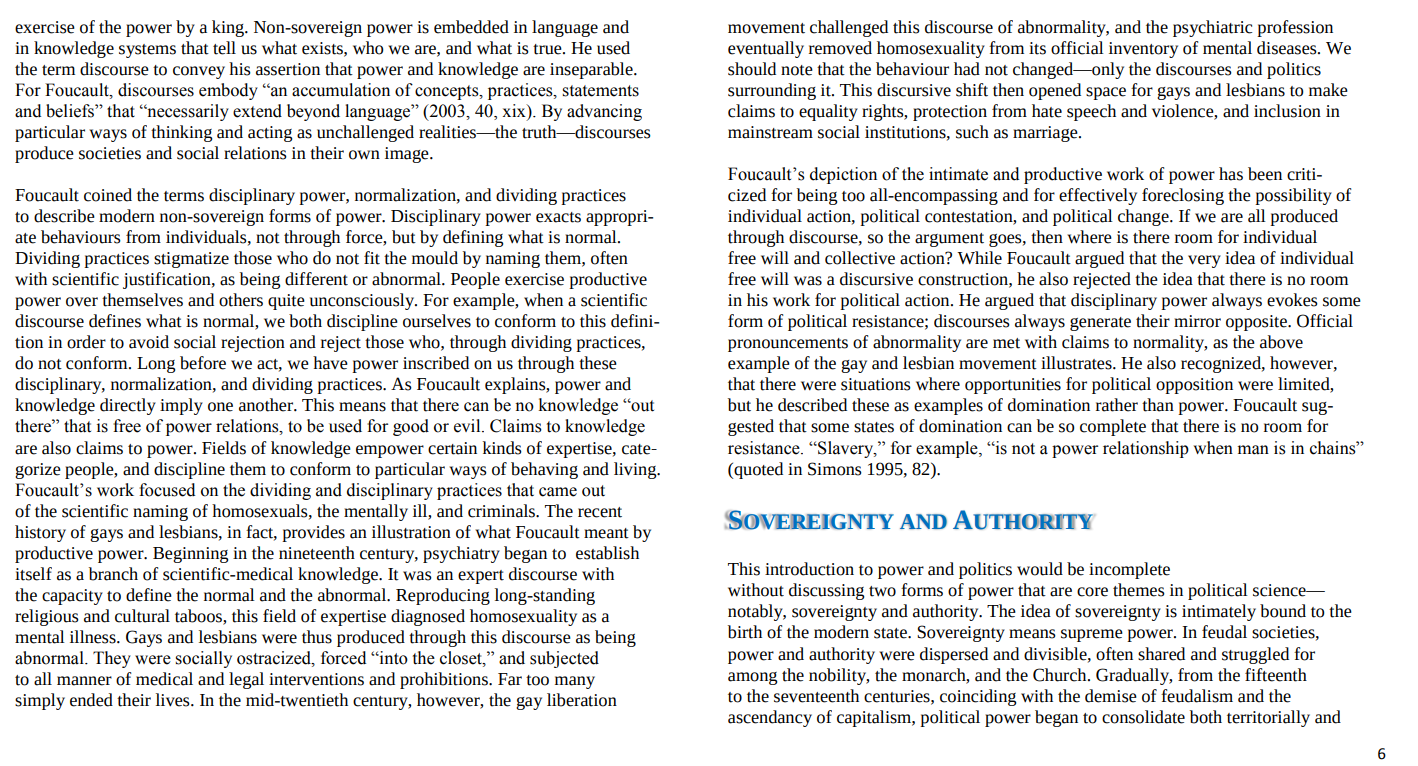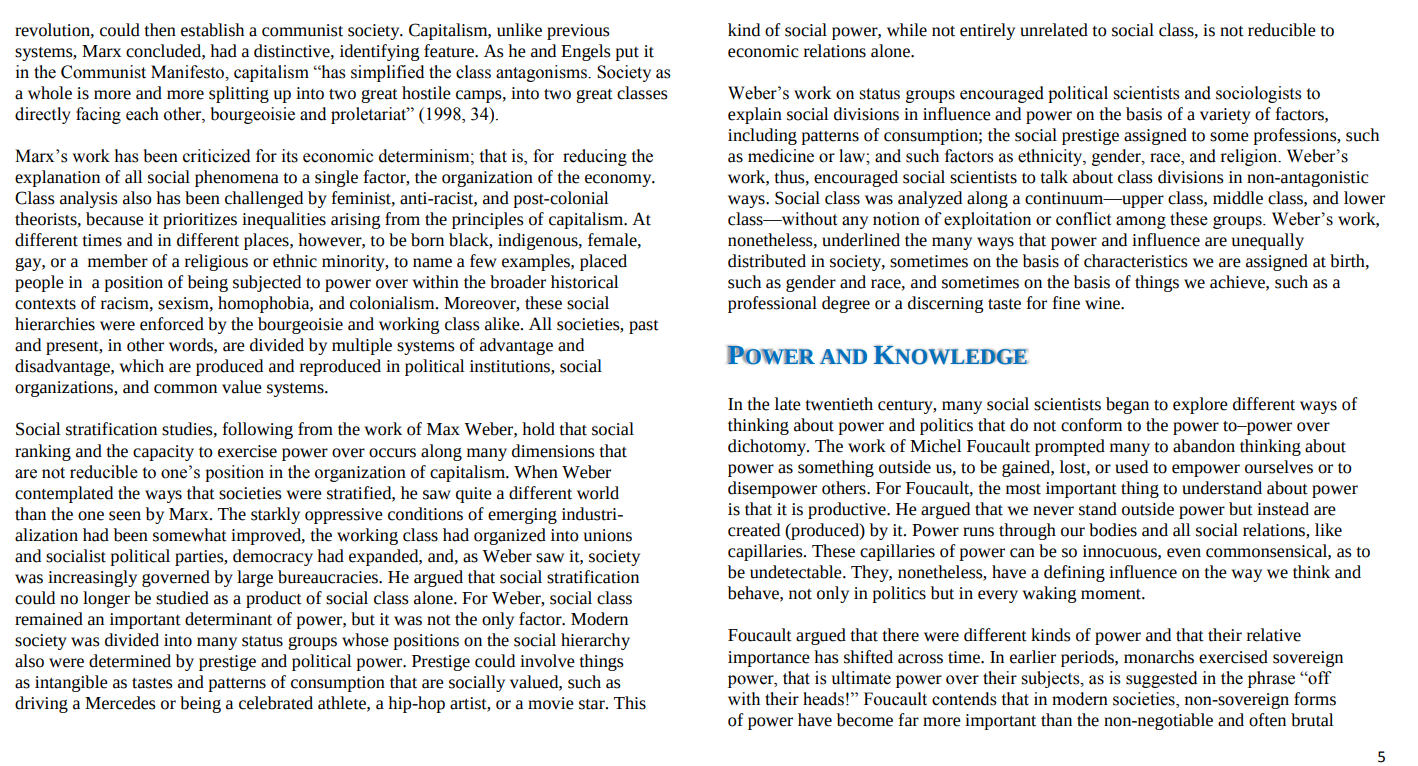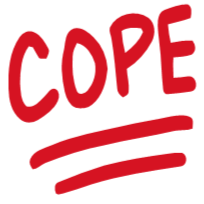Weber's work, thus, encouraged social scientists to talk about class divisions in non-antagonistic ways. Social class was analyzed along a continuum - upper class, middle class, and lower class - without any notion of exploitation or conflict among these groups.
God this pisses me off so much. Its been a while since I've studied Weber, so I don't remember if this is an accurate representation of his views, but this notion just fucking sucks.
Basically, she presents class as something that is not real. Class, when reduced to "upper, middle and lower" under capitalism, is an entirely aesthetic definition. Under feudalism, upper, middle and lower were real classes, wherein the upper class were those who owned land, the main form of wealth and representation of production, the middle class neither owned nor worked the land, but were free, and often educated and literate (guilds men, bureaucrats etc) and the lower class, who worked the land and were not free (peasants, slaves, serfs). This is a real distinction defined by the relationship of people to ownership of land.
But under capitalism, these terms are completely meaningless in terms of telling us what someone does for a living. A capitalist and a famous athlete, for example, are both upper class, despite one working for their wages and the other exploiting the labour of others. A doctor might be middle class, but they might also be upper class depending on how rich they are. A lot of people won't even say the words "lower class" or "poor", instead saying "working class", completely bastardizing the term as an innuendo for poor, because they feel uncomfortable acknowledging that there are poor people.
So what makes one upper, middle, or lower class under capitalism? Whatever you think. Most people want to think they're middle class, especially those who make significantly more than the average person (ie, people who make 100,000+ a year but are embarrassed to call themselves rich). Being middle class is about taking two vacations a year abroad, or having a laundry room, or having two cars and 2.2 children, or eating a fancy meal twice a month. Feeling middle class is being middle class. Being lower class is living in a "working class area", not being able to afford a good house, struggling to pay bills. More material than middle class, but still nothing of value. Being upper class is anything between a proletarian making 80,000 dollars a a year in their tech job, and Elon Musk. The divisions are undefined and ever changing - the difference in upper, middle and lower class is only ever a cultural attitude.
So when Bodie says that Weber encouraged social scientists to examine society on a basis of upper, middle and lower class, you should disregard the word "scientist" from their job title, because there is nothing scientific about this approach. They analyse vibes and prestige aesthetic, which can never be proven or disproven, therefore it is impossible to say that they are definitively wrong. Nothing about the upper-middle-lower class model is based in material, provable, measurable reality, which is the realm where science tends to take place.
This is not a social science at all; it is pure idealism









